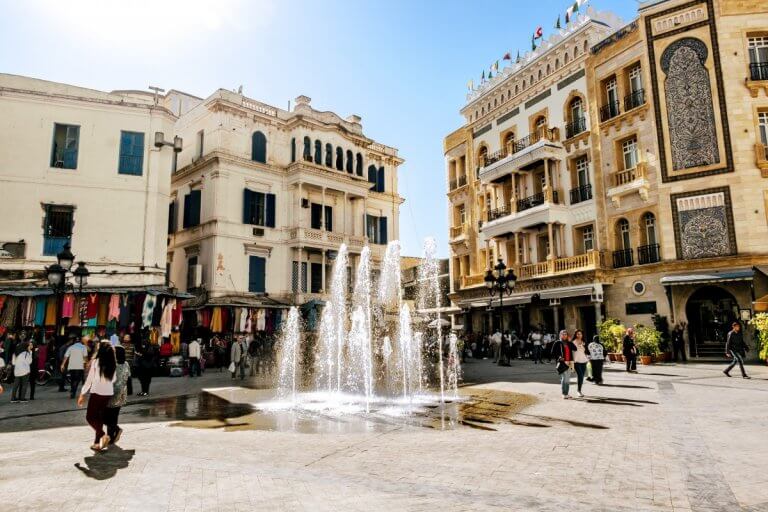
You probably haven’t thought about studying in the Republic of Tunisia in North Africa. It’s seldom – if ever – listed as one of the more common destinations for international students, and yet, year upon year it welcomes an increasing number of students from overseas.
According to official statistics obtained by Expat.com, in the academic year of 2014-15 Tunisia saw around 8,000 international students enrolled in its private higher education institutions alone, a number which is believed to be growing.
Approximately 70 percent of international students in the country opt for private universities, with the remaining 30 percent studying in public institutions, Expat.com reported.
The team at The Daily Wildcat reported they recently had four international students studying in Tunisia visit the University of Arizona School of Journalism in the US.
Basheer Aldhorai, one of the students, studies for his Master’s at Institut de Presse et des Sciences de l’Information (IPSI), living in Tunis, Tunisia’s capital city.
“Personally, I have chosen to continue my academic studies in Tunisia, most notably because of the reputation of education there, the price of living, the status of graduates of Tunisian universities in the professional world and the democratic environment in the country since January 2011’s revolution,” Aldhorai wrote in The Daily Wildcat.
Spotlight on the experience of international students in Tunisia https://t.co/oVTsc9erKK
— tunisianmonitor (@tunmonitor) May 2, 2018
After Tunisia’s revolution, an atmosphere where freedom of expression was encouraged emerged, including in the press, which meant being a student journalist there suddenly became much more appealing for many students. Many other Arab and African countries do not share the same attitude.
Tunisia doesn’t just boast stunning scenery and a diverse cultural heritage, it also has a heavy focus on quality education after it gained independence from France in 1956.
Tunisia has a number of dynamic and diverse universities, shining with promise and awarding internationally recognised diplomas. Two of the country’s universites are in the overall Times Higher Education World University Rankings 2018.
The cost of both living and studying in Tunisia is low, with tuition at public universities costing international students no more than US$50 a year – the same price as domestic students.
At private universities, fees can vary depending on what program you are enrolled on but, on average Aldhorai claimed, the cost of tuition is roughly US$2,500.

Tunisia has more to offer than just a great education. Source: Shutterstock.
And living costs are just as low. Aldhorai also stated students in Tunisia benefit from discounted public transport fees, free tickets to art and cultural events and museums, as well as discounts at many restaurants.
The locals speak Arabic and French, with the majority of courses taught in these languages, however, English is also spoken relatively widely too. Tunisia is diverse, multicultural and multilingual, both inside and outside of its universities.
It is a country full of welcoming locals, modern infrastructure and a balmy climate, attracting the growing numbers of international students each year.
Tunisia also benefits from being a part of Africa, yet just a stone’s throw away from Europe, boasting the best of both worlds. But, despite being so close to Europe, the living costs are considerably more affordable than the majority of European countries.
https://twitter.com/SarahGueshi/status/989531788564459521
“As a foreign student you will find opportunities to participate in training workshops and professional and academic events,” Aldhorai claimed.
He stated his college attracts attention from widely-regarded media organisations all over the world, including the BBC and Al Jazeera, where they hold free courses and events for students, just “another indicator of the great prestige of [universities] in Arab and African countries”.
The country is no stranger to foreigners, with around 7 million tourists visiting Tunisia, which has a population of 11 million, every single year. Its very identity is built on peace: even the revolution seven years ago was fought for and resolved in a peaceful manner. So international students are welcomed warmly.
As a student, you really do get the best of both worlds. As Aldhorai said: “The country mixes the originality of the East with the modernity of the West.”
Could it be more students will discover the beauty, diversity and high-quality education Tunisia has to offer soon, seeing the international student market boom? Only time will tell.
Liked this? Then you’ll love…
6 of the best universities in Africa
Which country is home to the largest international student population?







